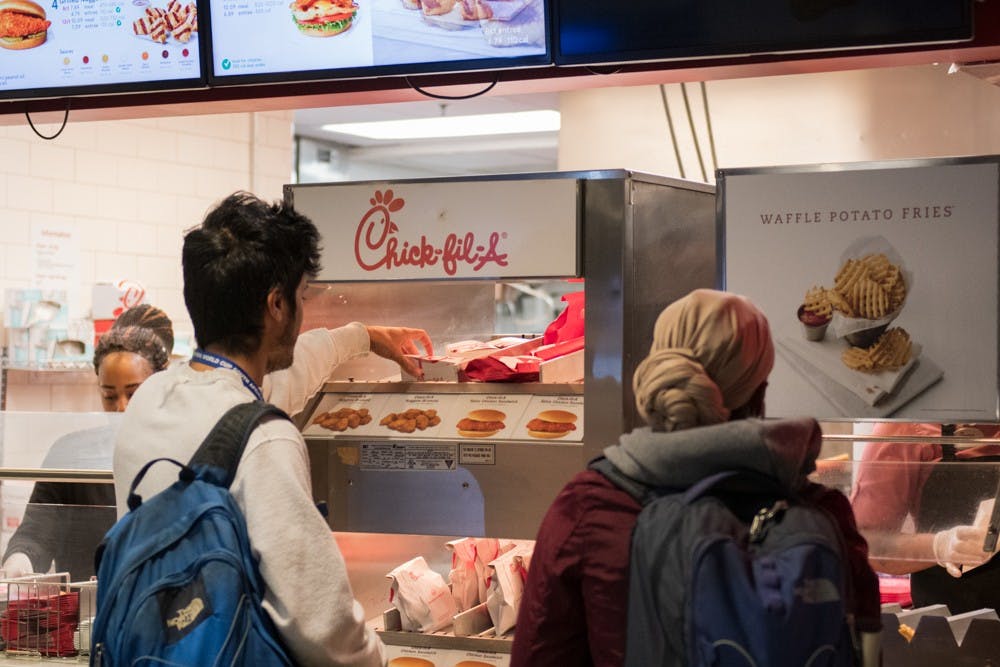When choosing a dining plan, it's vital for incoming students to consider both the numerous options available to them and the caveats, like Chapel Hill's accessibility to affordable and manageable groceries.
Nikita Muthakana, a rising sophomore and orientation leader at UNC, wrote in a message to The Daily Tar Heel that she was initially struck by the wide array of options available at on-campus dining halls.
"I simply was not sure which food to try first," Muthakana said.
While Lenoir and Chase dining halls serve similar food, a variety in atmosphere and specific options create distinct experiences for students like Bobby Peters, a rising senior and the chair of the UNC Student Dining Board.
"Only Lenoir has the famous burrito bowl bar, and only Chase has a made-to-order pasta bar," Peters said via email.
Muthakana said that the inviting atmosphere of the dining halls on campus made them a regular spot for her to gather with friends. She also said that the staff members at UNC dining locations were incredibly friendly and engaging.
On weekdays, the bottom floor of Lenoir, referred to as BOLO by students, has local and chain restaurant vendors open from 10:30 a.m. to 3 p.m. All of these options have main locations in Chapel Hill and include Alpaca Peruvian Charcoal Chicken, Bandidos, Bento Sushi, CholaNad, Chick-fil-A, La Farm Bakery, Mediterranean Deli and The Scoop. Alpaca Peruvian Charcoal Chicken and Chick-fil-A are both open for dinner and close at 8 p.m.
"[The] Bottom of Lenoir has incredible local options including my personal favorite, Med Deli,” Peters wrote. “Don't miss the spicy falafel and sundried tomato pasta."
Manzi Venter, a rising sophomore, wrote in a message to The Daily Tar Heel that she loved BOLO and its variety of options — especially CholaNad, with a main location on Franklin Street for over 12 years.



